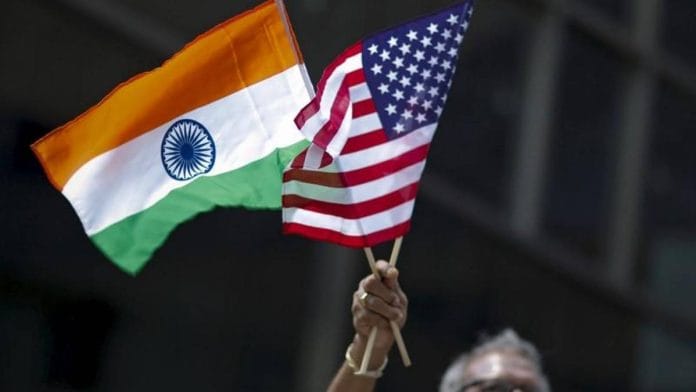Much of the charge sheet filed by the United States law enforcement authorities against Indian national Nikhil Gupta for allegedly plotting to kill another Indian-origin US citizen reads more like a crime thriller. It has been further alleged that Gupta was supervised by an Indian government official. New Delhi should lodge a strong protest against the attempts to cast aspersions on Indian government agencies and diplomatic personnel.
The charge sheet mentions that the so-called “victim”, Gurpatwant Singh Pannun, an attorney and political activist, leads a “US-based organisation” that advocates for the secession of Punjab. Now, the US State Department should clarify what it has done so far to curb such anti-India activities in the country. How will Washington react to an “India-based anti-US organisation”? Will it like New Delhi calling the plotters “victims”? Will the White House remain as indifferent and unconcerned as in the case of someone sitting in the US and masterminding anti-India plots?
Delhi has every right to ensure the safety of India’s borders, protect citizens from any kind of harm, especially those that arise out of secessionist and terrorist outfits, and safeguard the country’s national interests. Never in the history since Independence has India ever indulged in carrying out extra-judicial acts on foreign soil, much less take unilateral undercover activities like those that are usually reported to be carried out by undercover agents of security agencies in the West. Incidentally, this case, too, involves a US undercover agent.
Though the charge sheet does not name the “victim” — but, in all haste, names Gupta as the alleged conspirator — it is evident that Pannu is being referred to, the self-styled pro-Khalistan leader who threatened to blow up an Air India plane on 4 November. It is strange that no US agency condemned it, let alone take punitive action. The charge sheet also tries to link the alleged conspirators to the Hardeep Singh Nijjar murder case in Canada, though in a crass manner.
Also read: India-Pakistan can become Israel-Hamas. Lesson is not to fight terrorism by force alone
More anti-India activities in US
Meanwhile, the crime branch of Mumbai Police has filed a charge sheet against Canadian national Tahawwur Hussain Rana, a former medical officer in the Pakistani army and owner of First World Immigration Services, for his role in the 26/11 terror plot. In May 2023, a US district court in California approved Rana’s extradition to India for his role in 26/11, which he has since challenged. He is currently lodged in a jail in Los Angeles for his involvement in plotting a terror attack on the Danish newspaper Jyllands-Posten.
Indian investigation agencies have found several documents to prove that Rana was not only a co-conspirator along with American terrorist Dawood Salim Gilani alias David Coleman Headley but also that he actively plotted to give effect to the 26/11 attacks. There is enough evidence to suggest that he helped Headley get an Indian tourist visa on fake documents. Rana also allegedly provided logistical support to the Lashkar-e-Taiba for 26/11.
In 2005, Headly reportedly received instructions from his Lashkar handlers to travel to India and conduct surveillance of potential terror targets. The following year, with the help of Rana and his US-based company, he changed his name in Philadelphia to facilitate his activities on behalf of Lashkar, thus concealing his American and Pakistani Muslim origin. Can the US absolve itself of the anti-India activities plotted and carried out on US soil?
New Delhi should pursue the case of extradition of Rana and Headley to India for the crimes committed in the country from the US and impress upon the American law enforcement agencies to probe anti-India activities. The US is playing with fire by allowing secessionist and anti-India elements to flourish and commit terror acts against India. If Canada is at fault for harbouring anti-India elements, how can the US be different in this case? White House should realise that these very same elements could turn against the US and perpetuate another 9/11-like attack.
Feeding snakes in the backyard
The US foreign policy concerning South Asia, at times, has been highly detrimental to India’s security and economic interests, to say the least. The US is contemplating moves to usher in ‘course correction’ in its relations with Pakistan and countering the perception that Washington is increasingly tilting toward Delhi — all in an attempt to maintain stability in South Asia. Notwithstanding India’s objections, the Joe Biden administration approved a $450 million F-16 fighter jet fleet sustainment programme to Pakistan in 2022. India can take care of its defence needs, but it is the US that should worry about feeding snakes in its backyard.
The US should not descend to the level of a banana republic and have different laws for its internal security and the rest of the world, especially democracies like India that consider America their partner in strategic, security, and global geopolitical affairs.
Seshadri Chari is the former editor of ‘Organiser’. He tweets @seshadrichari. Views are personal.
(Edited by Humra Laeeq)






